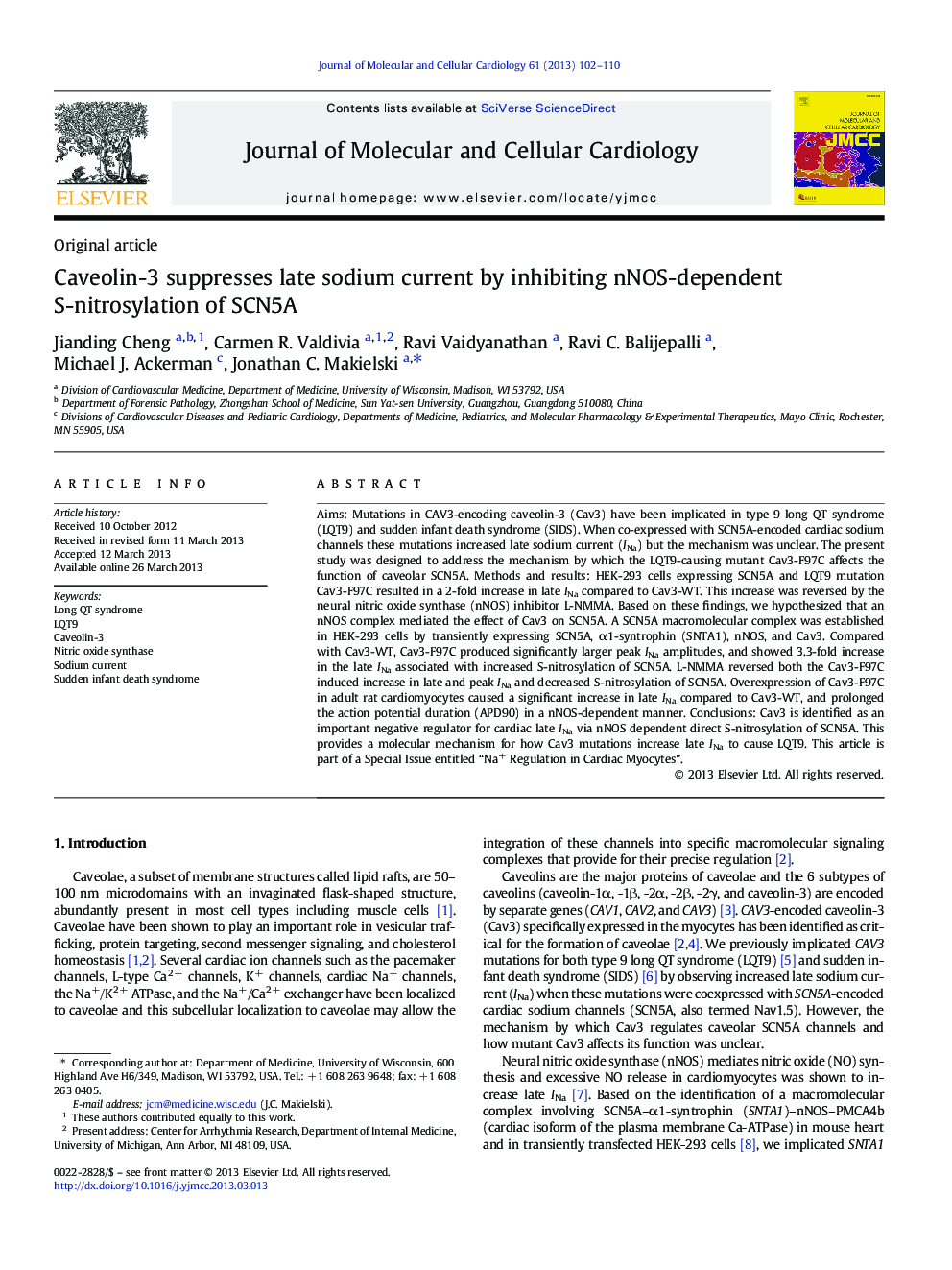| Article ID | Journal | Published Year | Pages | File Type |
|---|---|---|---|---|
| 8475156 | Journal of Molecular and Cellular Cardiology | 2013 | 9 Pages |
Abstract
Aims: Mutations in CAV3-encoding caveolin-3 (Cav3) have been implicated in type 9 long QT syndrome (LQT9) and sudden infant death syndrome (SIDS). When co-expressed with SCN5A-encoded cardiac sodium channels these mutations increased late sodium current (INa) but the mechanism was unclear. The present study was designed to address the mechanism by which the LQT9-causing mutant Cav3-F97C affects the function of caveolar SCN5A. Methods and results: HEK-293 cells expressing SCN5A and LQT9 mutation Cav3-F97C resulted in a 2-fold increase in late INa compared to Cav3-WT. This increase was reversed by the neural nitric oxide synthase (nNOS) inhibitor L-NMMA. Based on these findings, we hypothesized that an nNOS complex mediated the effect of Cav3 on SCN5A. A SCN5A macromolecular complex was established in HEK-293 cells by transiently expressing SCN5A, α1-syntrophin (SNTA1), nNOS, and Cav3. Compared with Cav3-WT, Cav3-F97C produced significantly larger peak INa amplitudes, and showed 3.3-fold increase in the late INa associated with increased S-nitrosylation of SCN5A. L-NMMA reversed both the Cav3-F97C induced increase in late and peak INa and decreased S-nitrosylation of SCN5A. Overexpression of Cav3-F97C in adult rat cardiomyocytes caused a significant increase in late INa compared to Cav3-WT, and prolonged the action potential duration (APD90) in a nNOS-dependent manner. Conclusions: Cav3 is identified as an important negative regulator for cardiac late INa via nNOS dependent direct S-nitrosylation of SCN5A. This provides a molecular mechanism for how Cav3 mutations increase late INa to cause LQT9. This article is part of a Special Issue entitled “Na+ Regulation in Cardiac Myocytes”.
Related Topics
Life Sciences
Biochemistry, Genetics and Molecular Biology
Cell Biology
Authors
Jianding Cheng, Carmen R. Valdivia, Ravi Vaidyanathan, Ravi C. Balijepalli, Michael J. Ackerman, Jonathan C. Makielski,
